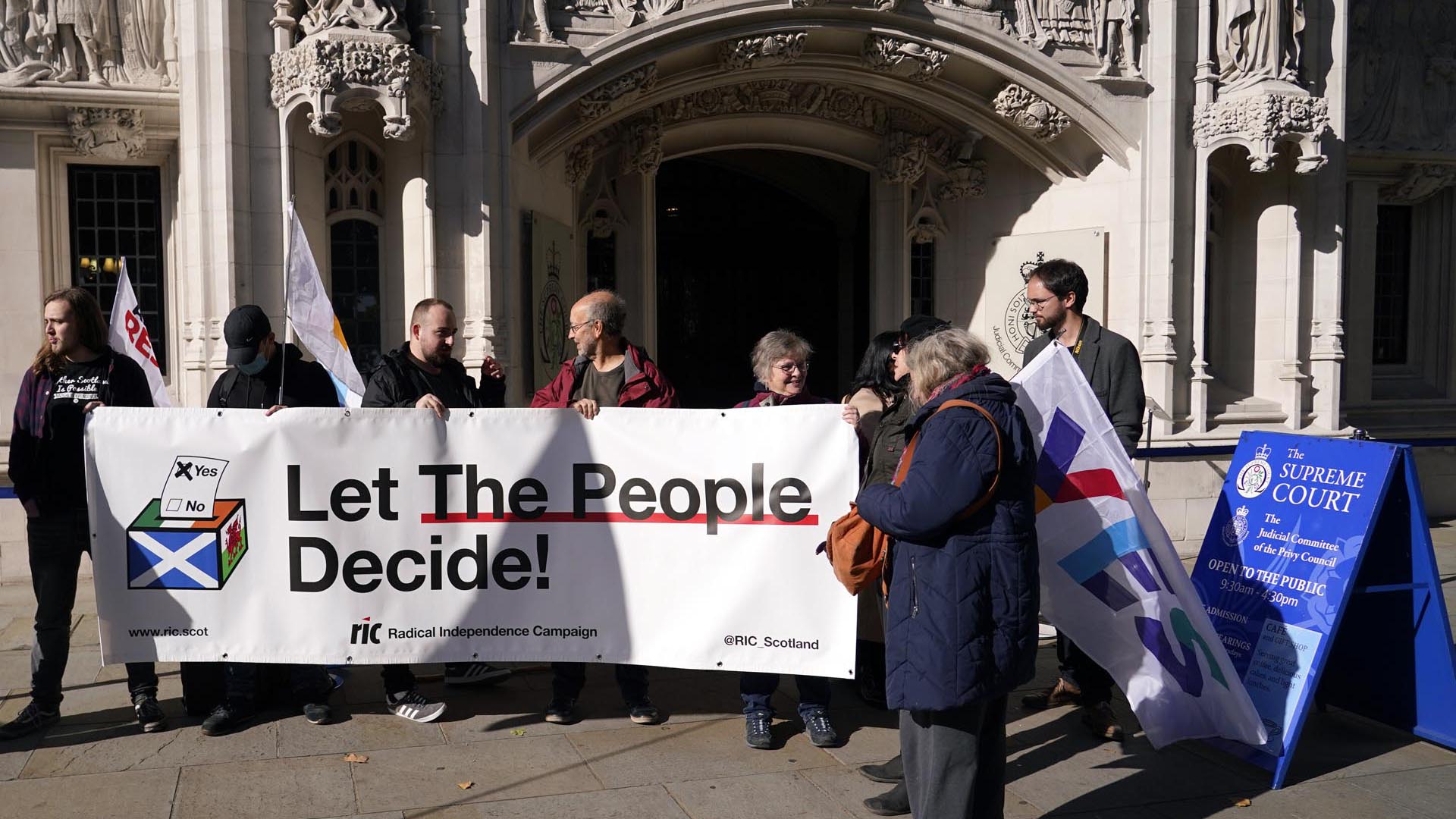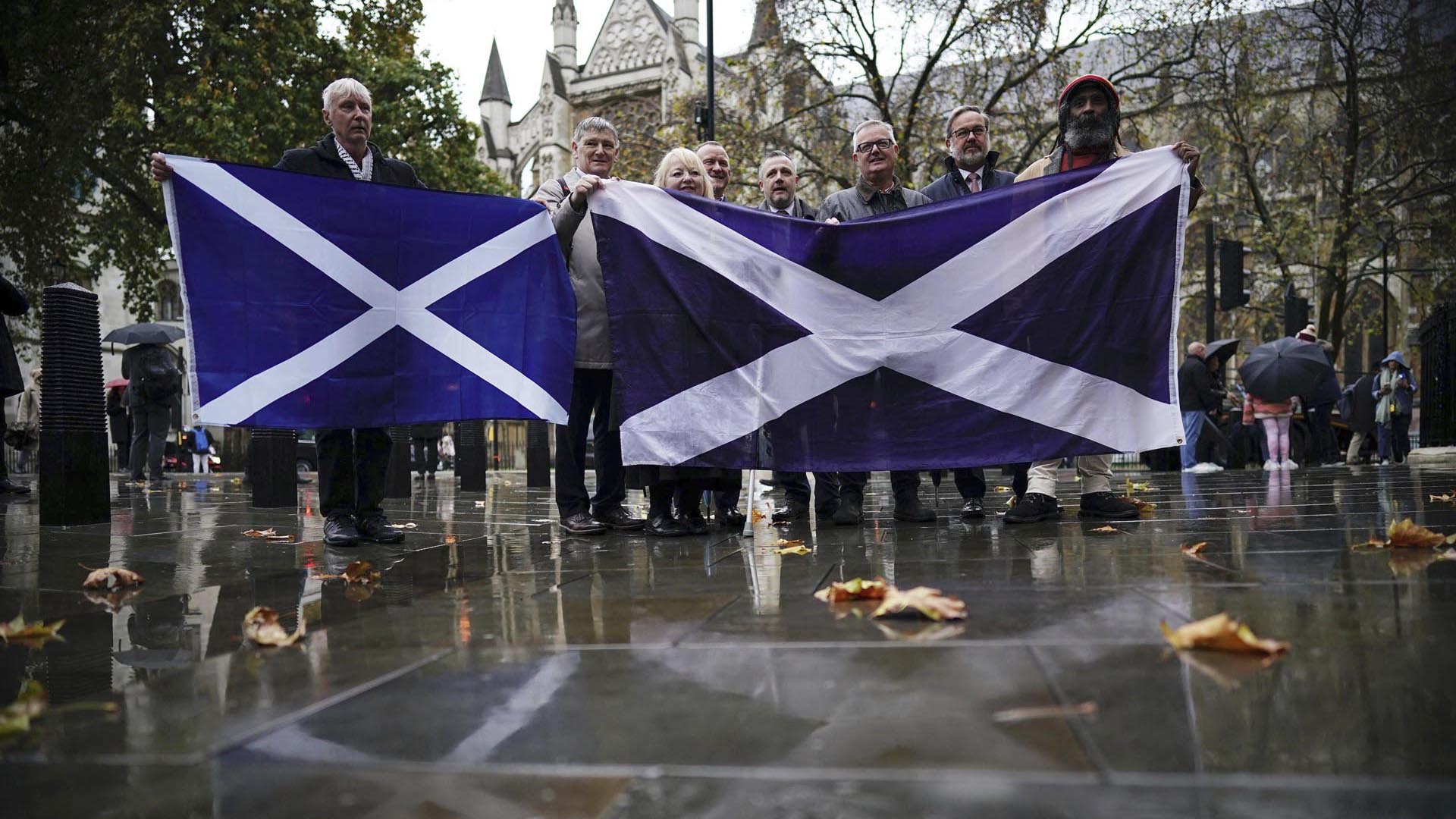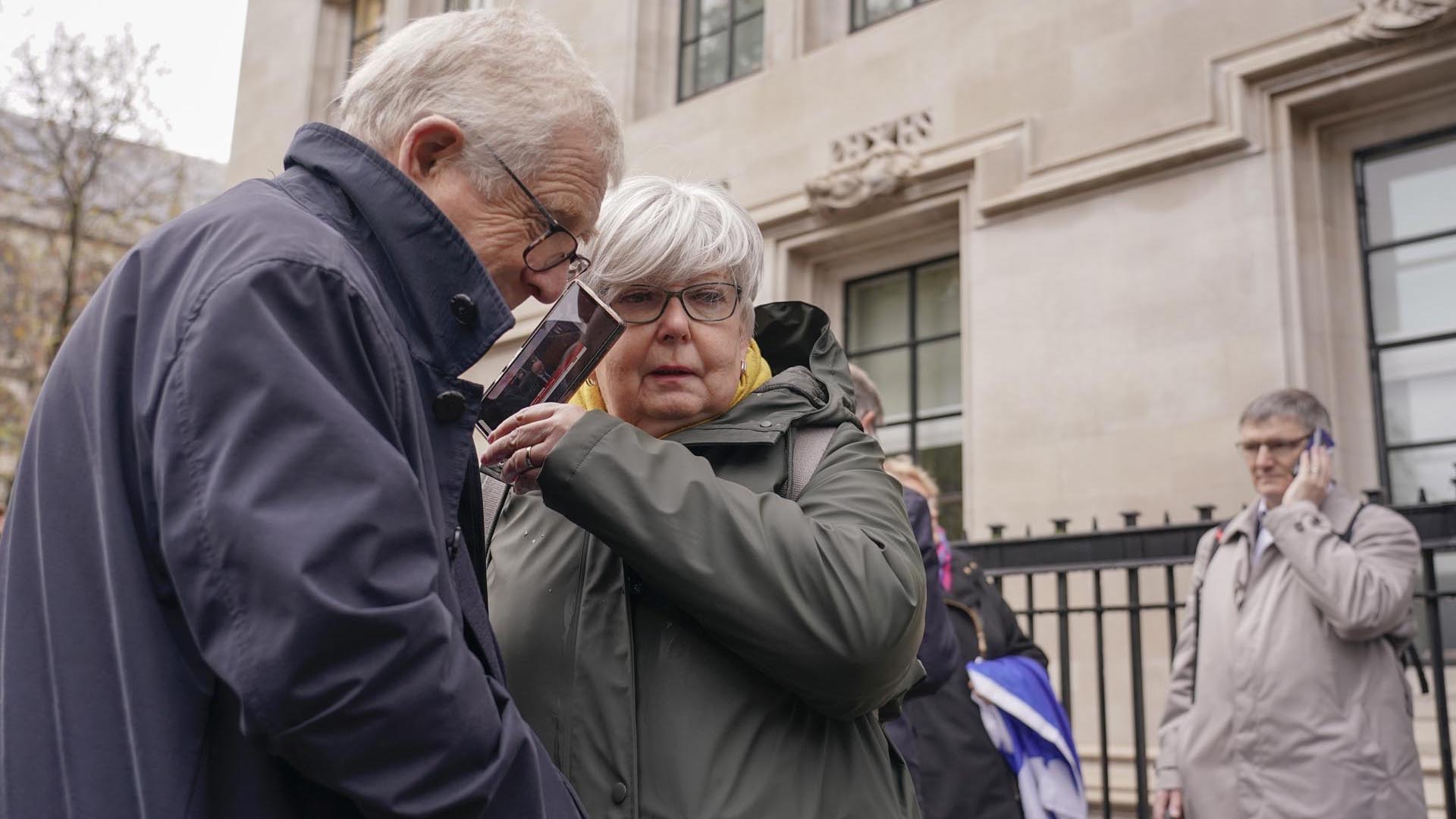Britain’s Supreme Court ruled on Wednesday that Scotland does not have the power to hold a new referendum on independence without the approval of the British government. The ruling is a setback for the Scottish government’s campaign to secede from Britain.
The high court ruled that the Scottish Parliament “has no power to legislate for a Scottish independence referendum”.
Supreme Court Chief Justice Robert Reed said all five judges agreed in the ruling, which came six weeks after lawyers for the Scottish independence administration and Britain’s Conservative government argued their case at a hearing in London.
Scottish First Minister Nicola Sturgeon said so disappointed but that he would “respect” the sentence. However, he said on Twitter: “A law not allowing Scotland to choose our own future without Westminster’s consent debunks the myth about the idea of England as a voluntary association and supporter of (independence).”

Independence supporters plan to demonstrate outside the Scottish Parliament in Edinburgh and elsewhere on Wednesday.
Scotland’s semi-autonomous government wants to hold a referendum next October on the question “Should Scotland be an independent country?”
British Government in London refused to votesaid the issue was resolved in a 2014 referendum in which Scottish voters rejected independence by a margin of 55% to 45%.
However, the independence government in Edinburgh wants to review the decision, arguing that Britain’s exit from the European Union, opposed by a majority of Scottish voters, has radically changed the political and economic landscape.

Sturgeon argued that he had a democratic mandate from the people of Scotland to hold a new secession vote because the majority supported independence in Parliament.
During a High Court hearing last month, Dorothy Bain, the Scottish government’s top legal officer, said most Scottish MPs had been elected with a commitment to holding a new independence referendum. He also said the referendum would be advisory, not legally binding, although a “yes” vote would create strong momentum for Scotland to secede.
British government lawyer James Eadie argues that the power to hold a referendum rests with the British Parliament in London, because “This is very important for England as a whole”not just for Scotland.
The chief justices agreed. They said it was clear that “a bill providing for a referendum on independence, to end the sovereignty of the British Parliament over Scotland, has more than an obscure or consequential relationship to that Parliamentary sovereignty.”

Reed emphasized that the court “is not, and cannot be asked to express an opinion on the political question of whether Scotland should become an independent country.”
Opinion polls show that the Scots divided in the same section on independence, and also the majority of voters do not want a new referendum any time soon.
Scotland and England have been politically united since 1707. Scotland has had its own parliament and government since 1999 and makes its own policies on public health, education and other issues. The British government in London controls things like defense policy and taxes.
Sturgeon has said that if his government loses his case, it will make Britain’s next national election the de facto plebiscite to end Scotland’s three centuries-long union with England. He hasn’t provided details on how it works.
(with information from AP)
Keep reading:

“Internet trailblazer. Troublemaker. Passionate alcohol lover. Beer advocate. Zombie ninja.”

:quality(85)//cloudfront-us-east-1.images.arcpublishing.com/infobae/NWXIDACDYZGJTHGKAMI57P6KEQ.jpg)





